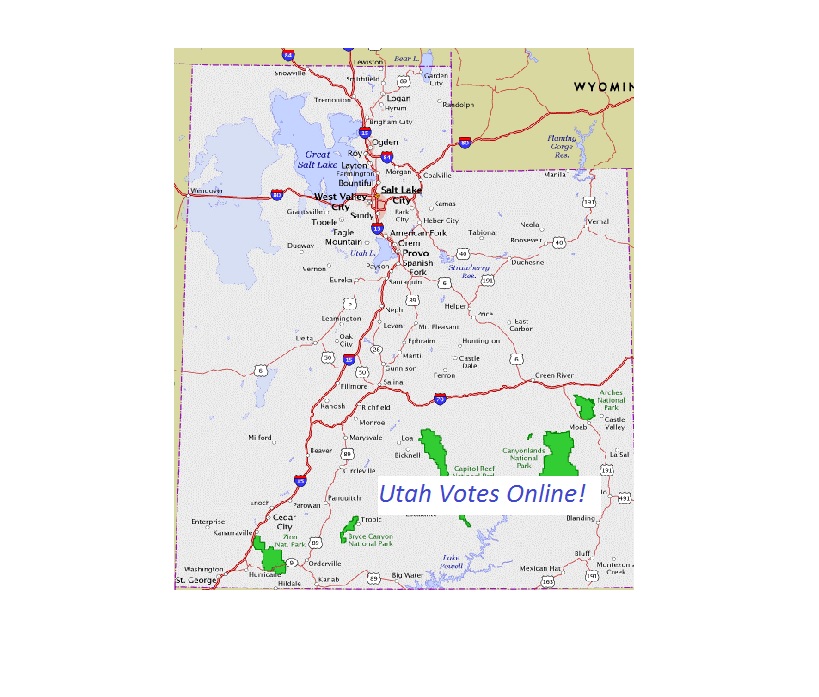
Voter turnout increased dramatically when Utah voters voted online.
As voters around the country begin to vote (early voting has begun in some places), and look toward voting this November, it is worth remembering that 2016 saw a major example of better ways to make it possible for greater participation in democracy in America. The article below was originally published March 28, 2016:
As I reported the day after the March 22nd GOP Caucus online vote, what little attention the media paid to this historic election was generally skewed, praising five hour lines at the polls as an example of democracy at work, while characterizing any reported inconvenience with the online vote (justified or not) as anything from technical “hiccups” to “a plague of registration problems”.
Certainly the vote in Utah was not without some issues, mostly related to communication with the public. Some of these issues may have been avoidable. A fair review of the Utah vote should not neglect noting mistakes made.
As Amber Phillips correctly points out, in her recent terrific Washington Post interview with Joe Mohen, Utah wasn’t the first time Americans voted online. There was a time, over a decade ago, when U.S. election systems were on a track to modernize. Had that trend continued, we would probably all be voting online by now.
Unfortunately, due to very successful resistance to election automation, modernization stagnated in the mid 2000s. This was a trend that only worsened since. It has been the period I refer to as “The Lost Decade”.
Utah is therefor extremely historic and important. It hopefully will usher in a new era for all American voters. It deserves a fair review.
In 2010 a testing trial of an online vote in Washington DC, conducted on an amateurish platform, was easily compromised when challenged. As a result the actual online election did not take place. To this day that one poorly run project has been used to negatively define all online voting platforms.
Now we have Utah 2016, an actual election conducted by a large online voting service provider with an international track record of success. It deserves at least as much attention as DC 2010. It deserves a fair review.
Below is a fair review of the Online election conducted Statewide by the Utah GOP, on March 22nd, 2016:
In the case of an online election, a primary decision made by election administrators is which online voting service provider to use. There are several large companies, and numerous smaller ones. The Utah GOP made the right choice in using one of the larger companies, Smartmatic, to conduct the election in Utah. Given how important it is that such an historic election go smoothly, choosing a small company could have been disastrous for the future of online voting in America.
The GOP could have also chosen another company with a great track record, such as Everyone Counts (located in San Diego), or Scytl (The largest online voting service provider in the world). As long as they worked with a company that had a lot of experience running online elections and serving large numbers of voters, a successful outcome was likely.
Phone Help Lines were set up to assist voters who had problems or questions regarding the online election. It was these phone lines that received a great deal of traffic on election night in Utah. Many people called in claiming they were unable to vote online. In the end, it turned out that 90% of these callers had failed to register. In other words, phone lines were NOT jammed with eligible voters having technical difficulties trying to vote online. In fact, the overwhelming majority of eligible voters had a very positive voting experience.
How about voter turnout? Did participation numbers increase in Utah? They sure did. More people voted just online, than participated in the entire previous Presidential caucus.
What grade does Utah receive with regards to online turnout? A+.
At the same time, from the perspective of security, the election in Utah ran flawlessly. This result was no surprise to anyone familiar with real online elections. Online election results were reliable, exact, and produced very quickly. Things you rarely get from paper ballot, polling place election results.
A week before the election, I predicted the 2016 Utah GOP online caucus to be a “bad day for the naysayers”. It proved to be just that. Opponents of digital voting say it is all about security. They have predicted disaster, should we attempt any elections online, for twenty years.
What security and reliability grade does Utah 2016 Online deserve? A+
The FACTS about the online vote in Utah include the following, based on a survey of those who participated:
•94% of respondents described the online voting experience as good.
•97% would consider voting online in future elections.
•82% wanted to see online voting implemented nationwide.
FACT: Utah was a stunning success.
It was a very bad day for the naysayers.
